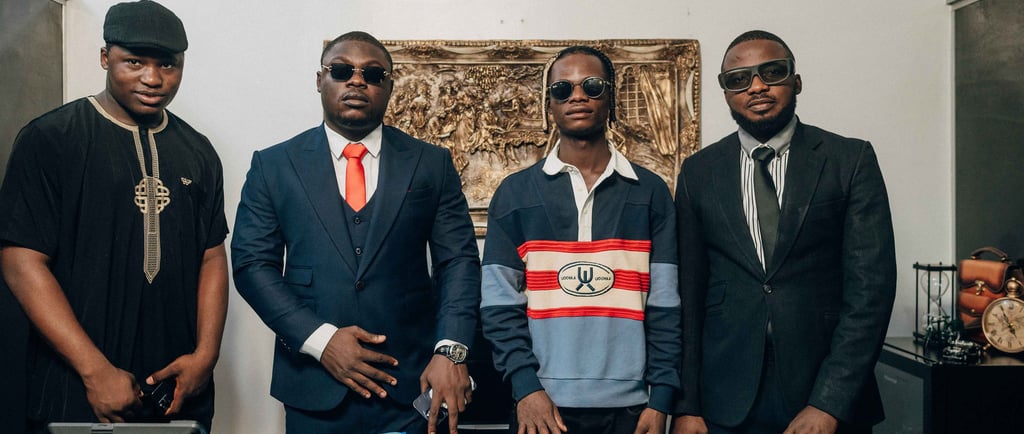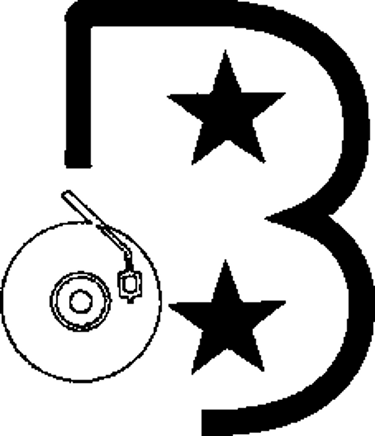How to Get Signed in Nigeria (2025 Guide)
Victor Ojong
7/30/20254 min read


If you want a real record deal in Nigeria in 2025, think like an entrepreneur who happens to make music. Labels do not buy songs, they invest in momentum. This guide shows you how to create that momentum, package your music professionally, and pitch to the right A&R teams across Nigeria and the wider African market.
Step 1: Build proof before you pitch
Labels and A&Rs look for traction that reduces risk. In 2025 the strongest signals are:
Songs people finish and repeat: aim for strong completion on TikTok and Instagram Reels, save rate on Spotify and Boomplay, and repeat listens on Audiomack.
Organic community: 1,000 true fans who comment, save, and share beat 10,000 fake followers.
Live pull: short performance clips that show energy and crowd reaction work better than long studio montages.
Consistent release schedule: 2 to 4 singles across 8 to 12 weeks is better than one random drop.
Fast setup checklist
Distribute with a reputable aggregator, claim artist profiles on Spotify, Apple Music, Boomplay, and Audiomack.
Use clean cover art, correct metadata, and both clean and explicit versions.
Collect emails and WhatsApp opt-ins from fans at shows and in your bio link.
Step 2: Make a demo A&Rs actually open
Your demo must sound like a near-release, not a rough idea.
Audio quality
Final bounce in WAV 24-bit, 44.1 kHz.
Keep peaks clean, leave a little headroom.
Have radio edit and explicit versions if lyrics are spicy.
What to include
1 lead song that represents you today, plus 1 to 2 alternates.
A short one-page EPK link with your bio, photos, key stats, and links.
Credits for producer, songwriter, and mix engineer.
Optional: a 30 to 45 second performance clip.
What not to do
Do not attach giant files. Use one private streaming link and one downloadable link.
Do not send 15 tracks at once. Curate.
Do not mass email 100 people in BCC. Personalize each note.
Step 3: Create a one-page EPK that converts
Your EPK is your pitch deck. Keep it fast and visual.
Top section: Artist name, city, genre tag like Afrobeats fusion or Afro RnB, short 2 line mission.
Music links: one feature track, two follow ups, YouTube video if available.
Numbers that matter: monthly listeners growth, top 3 cities, notable playlist adds, show highlights, press mentions.
Story hook: one paragraph that explains your angle. Example: “Port Harcourt born singer blending highlife guitars with amapiano log drums.”
Assets: 2 to 3 press photos, logo if you have one.
Contact: manager or you, phone and email, Instagram and TikTok links.
Host the EPK on a clean web page or a shareable doc. Keep all links up to date.
Step 4: Where to submit in Nigeria and how to find A&R contacts in Africa
You want to reach people who actually listen. Use a layered approach.
Label submission portals and emails
Some labels and management houses occasionally open demo calls. Check official websites and pinned posts on Instagram, X, and LinkedIn. Search phrases like “record labels accepting demos Nigeria” and “submit demo Afrobeats”.Target A&Rs by credits
Open Spotify or YouTube, look at credits and recent signings. Search “A&R” plus the label or artist name on LinkedIn and Instagram. Build a short list and engage with their posts before you pitch.Industry gateways
Platforms like curated submission hubs, music incubators, and show case events can help you get warm referrals. Prioritize those with transparent feedback and a track record with Afrobeats.Managers and producers as bridges
A respected producer or manager can pass your song to an A&R faster than a cold email. Treat every collaboration like an audition for the next room.
Cold outreach rules
Keep your subject line short and specific. Example: “Afrobeats demo for A&R review, Lagos based, 2 live clips inside”.
Personalize the first sentence. Mention one recent signing or release they worked on.
Make it easy to say yes. One song to click, one minute to understand you.
Email template you can copy
Subject: Afrobeats demo for A&R review, Lagos based artist with live clips
Hello [Name],
I am [Artist Name], Afrobeats singer based in [City]. I am sharing my lead single “[Title]”, produced by [Producer]. It is a clean 3 minute record with a strong hook that has been tested on Reels.
Private stream: [link]
Download: [link]
45 second live clip: [link]
1 page EPK: [link]
Highlights: [recent playlist or show], top cities [Lagos, Accra, London], steady growth in the last 8 weeks. I would value your feedback and would love to send stems if you want to explore.
Thank you for listening.
[Your Name] | [Phone] | [Email] | IG [@handle]
What labels look for in 2025
Unique voice and song identity within Afrobeats or adjacent sounds.
Data signals like saves, shares, Shazam in key cities, completion on short video platforms, repeat listens on streaming.
Performance potential shown by short live clips and crowd reaction.
Professional team and reliability even if it is a small team.
Clear lane they can amplify without changing who you are.
Understand deal types before you sign
This is general information, not legal advice.
Distribution deal: you keep control, the distributor gets a small percentage for getting your music on platforms and sometimes pitching.
Label services: you fund recording, they provide marketing, radio, and playlist pitching for a bigger percentage.
Recording deal: the label funds and controls more, recoups expenses from your royalties.
Single or project deal: one song or one EP, good for testing the relationship.
360 deal: label takes a cut from multiple income streams like shows and merch. Consider only if the value is real.
Always let an entertainment lawyer in Nigeria review your contract before you sign.
12 week momentum plan that makes A&Rs reply
Weeks 1 to 2: finish your lead single, cover art, clean and explicit versions, short performance clip, and EPK.
Weeks 3 to 6: drop the single, run micro content daily, reply to comments, shoot a one take performance video, collect fan contacts.
Weeks 7 to 8: release a follow up or a high quality remix or acoustic version.
Weeks 9 to 10: perform 2 to 3 small shows, capture crowd clips, collaborate with one creator who fits your vibe.
Weeks 11 to 12: pitch A&Rs with your updated numbers and clips. Keep it short, polite, and professional. Follow up once after 7 to 10 days.




